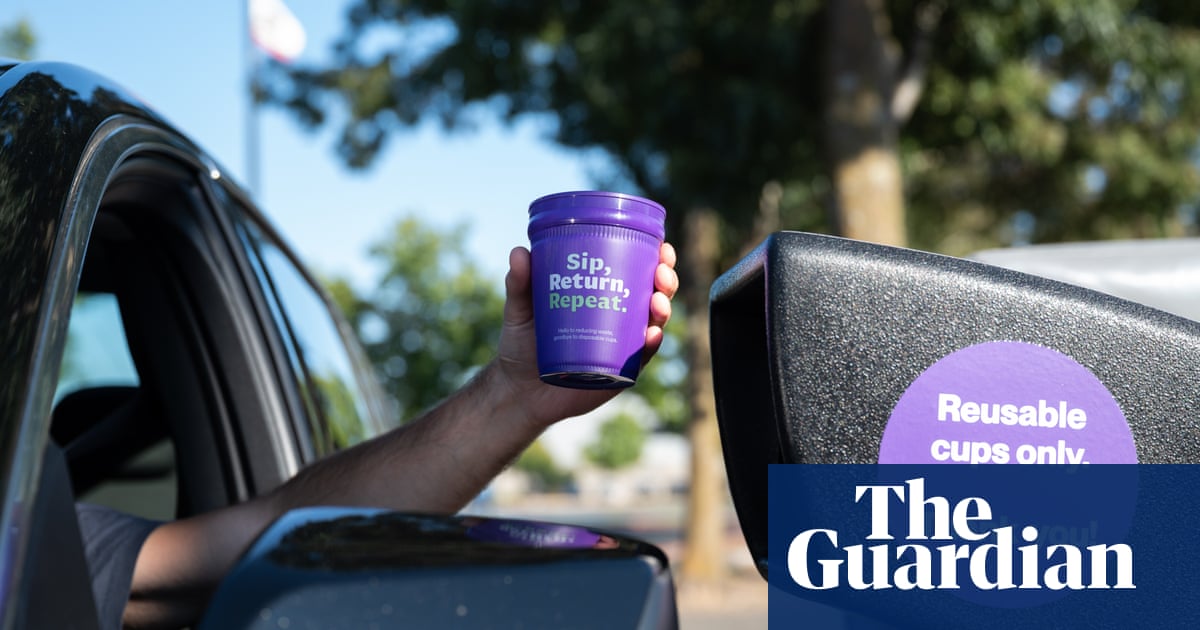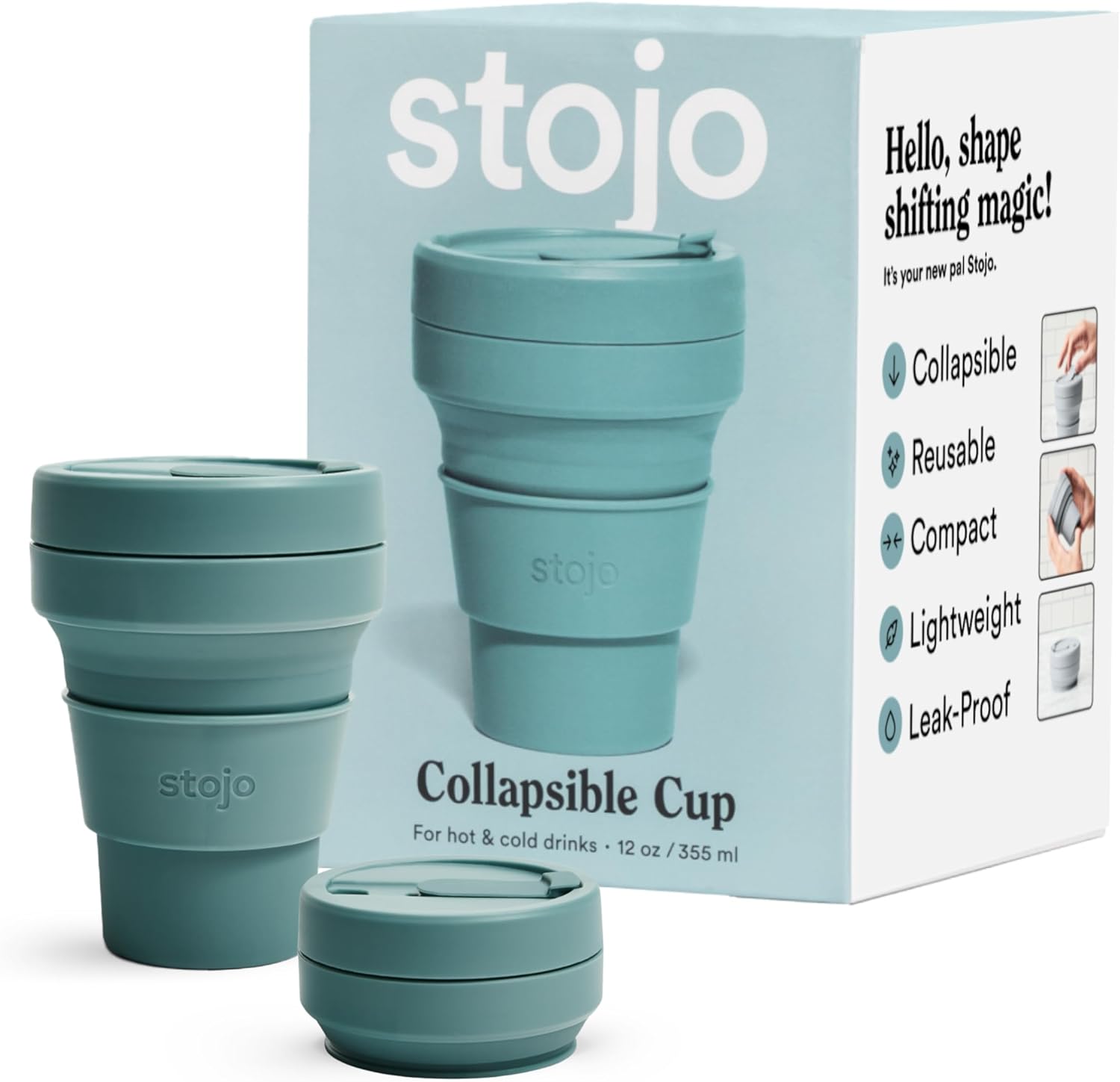Instead of the single-use paper or plastic cups that Gearhard would usually line up for the barista slinging espresso, he’s passing over shiny new reusable cups that bear the slogan “Sip, Return, Repeat”. Customers who need their lattes to go can take the purple cups with them, then return them to one of 60 bins scattered across downtown Petaluma when they’ve finished. Each cup comes with a trackable QR code to help monitor results.
First-of-it’s-kind lol. The German city of Tuebingen does it for 2-3 years already.
This was how all glass bottles used to work during most of the 20th century.
I mean, good for them, but returnable packaging isn’t that crazy of an idea. It’s not surprising that someone came up with “hey give us back the thing instead of trashing it and we’ll use it again” before the year we figured out talking computers.
Generally the whole of Germany has the Pfand system, where you pay a 25¢ deposit when you buy a bottle that you get back once you return it.
Tuebingen did their re-usable cups and bowl stuff to tackle trash from one time packaging like burgers, paper cups and so on. The city imposed a tax on the one time stuff that then “soft-forced” people to adopt the returnable packaging.
Honestly, it’s not much different to the refillable water bottles people carry around. Now people hand over their boxes to the Dönermann to get their Dönerbox.
I wish I could just bring my empty jug of washing detergent / dish soap / whatever and refill it.
Some places allow you to buy in bulk and pay detergent by weight.
The pharmacy I go to have some bulk/refill station
unbreakable glassware could be an option
I worked for a glass bottle company for 8 years. Glass used to be a lot thicker, and returnable bottles were designed exactly for repeat uses. But for cost savings, lightweight single use bottles came into play especially as technology improved to blow the glass with more even thickness. Less weight equals more bottles on a truck from the glass manufacturer to the filler, from the filler to the distributor, from the distributor to the grocery stores.
The shops aren’t having to clean the cups themselves – they’re washed by an outside logistics company – meaning there’s one less thing for businesses to factor in as they make the switch.
This is an important detail that I think was very clever to include in the program. Reduce the friction to gain buy-in.
The reusable cups are plastic. Can plastic be sanitised as well as glass? We know that glass can be used in such schemes as it used to be in the past.
Forget sanitation, why are we making any kind of environmental solution out of plastic? Can people not bring a metal cup to the coffee shop?
Using a thin walled metal cup would be super hot and burn people. But using an insulated metal cup would get people to keep them. Idk how to solve that. Make something safe but worthless enough to return.
Ask people to bring their own washed cup with the appropriate capacity. If they don’t have one, provide them with a reusable cup they have to pay extra for.
You have to make people pay to overcome the path of least effort that single use plastics opened.
Just like paid plastic bags in supermarkets, I believe it works well.You have to make people pay to overcome the path of least effort
Yep: What has worked to fight climate change? Policies where someone pays for polluting, study finds
I have a sneaking suspicion that at least in some US states this would be problematic with local health departments. I do not know, but it seems these departments might look askance at Joe Schmo handing an un-verifiably “clean” container into the food service area and hands of the workers.
I suspect that making metal insulated cups is cheap these days. Perhaps this could solve that. I doubt people would hoard mountains of them. Then it becomes a matter of paying for the hoarded ones. People hoarded and still do some glass bottles where glass bottle replacement schemes exist/have existed.
Thinking more on this point, a genuine replacement for single use plastics for beverages could be a soda can equivalent, cheap, double wall aluminum container. If someone can make such a container for low enough cost, that could be a solution since aluminum is infinitely recyclable.
Metal as a whole but especially aluminum transfers heat really well the way to stop that is to create a vacuum between the walls of the cup which costs significantly more than plastic forming, then that vacuum can be readily damaged if it’s dropped and it’s even recommended that it isn’t put through heavy dishwasher cycles which both are likely to occur. Finally you have the issue that people would just keep them for home as the double walled cups can be expensive which would mean they aren’t available in shops and thus you have to use more single use plastics. While plastic cups don’t sound great this plan would reduce overall plastic usage
Most people stop for coffee on their way somewhere. They don’t want to be carrying a cup around all day.
Takeout cups should be environmentally friendly, or not offered at all. If you can’t make it green, make time to sit down for your coffee (or put up with your own travel mug).
not to mention possible issues with plastic leeching, especially in hot beverages.
Headlines in one year: ”Amercan waterways flooded with reusable cups as Americans still throw away what should be reused."
Got 4 little ones for camping, collapsed they’re only 1cm tall.
They have this in Taipei and it doesn’t work because the places is to return the cups are not convenient enough.
What’s their difference to glass bottles? i.e. the ones Coca Cola uses?
The Guardian - News Source Context (Click to view Full Report)
Information for The Guardian:
MBFC: Left-Center - Credibility: Medium - Factual Reporting: Mixed - United Kingdom
Wikipedia about this sourceSearch topics on Ground.News
https://www.theguardian.com/environment/article/2024/aug/24/petaluma-reusable-cup-project-california
Bullshit, The Guardian is as credible as they come.













